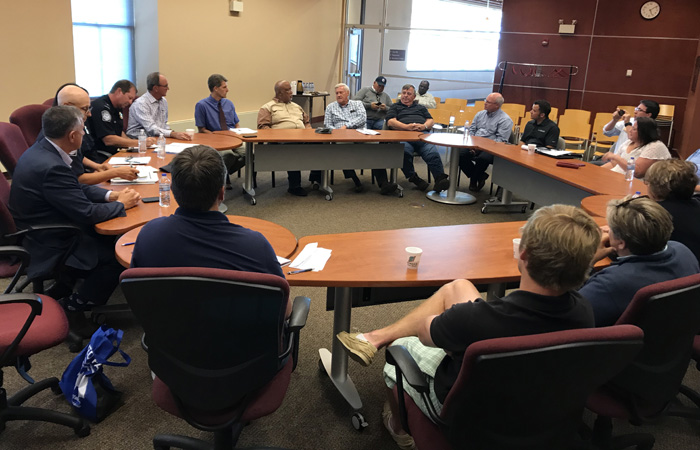Ted Falk, Member of Parliament for Provencher, recently traveled to Lancaster and Roseau Minnesota, to meet with members of the U.S. House of Representatives to discuss the change in border crossing hours affecting several border communities.
“Reduced border hours on the American side of the border are a real problem for residents in Provencher,” said Falk. “I was very pleased that we were able to get the proposed decrease in hours on the Canadian side cancelled last November. However, the problem still exits on the US side and it affects both Canadians and Americans.”
MP Falk met with Congressman Collin Peterson (D-Minn), and Chairman of the House Homeland Security Committee, Congressman Bennie Thompson (D-Miss). Also present were three directors from US Customs and Border Protections and numerous citizens and community leaders, including Reeves and Councillors from affected municipalities.
Last fall, hours at the Lancaster port were reduced from 8am-10pm to 8am-8pm during the summer, while winter hours were reduced to 8am-6pm. In mid-September, hours at the port will be on the winter hours schedule. At the Roseau port, hours were reduced from 8am-12am to 8am-8pm, year-round.
“Canadians who live along the border are inextricably linked together with the communities on the American side,” said Falk. “These changes have created numerous problems for people who rely on crossing the border regularly.”
Last fall, MP Falk worked with the Public Safety Minister and was successful in seeing the proposed changes in port hours put on hold on the Canadian side.
“I spoke directly with Public Safety Minister Ralph Goodale in Ottawa when the news of the reduction of hours came to light. I shared with him letters from the local Reeve’s and MLAs of the areas affected,” stated Falk. “And, of course, I joined with the hundreds of local residents to share my concerns at the public meetings – which were held after the decision had already been made. We were so please when those changes were put on hold.”
Now, Falk is working with those on the US side to return this important service to these affected communities.
“Hopefully we’re as successful in convincing US officials to change their decision as we were here in Canada,” said Falk.





